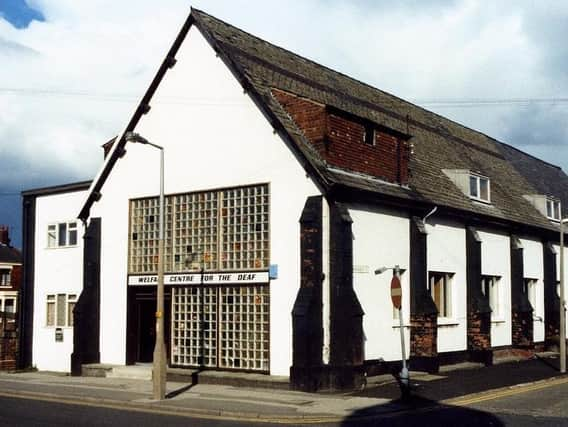Preston teeanger killed by electric shock while delivering coal


The Rialto Cinema on St. Paul’s Road was a flourishing cinema in 1946. The building next to the old Preston to Longridge railway line had originally been the chapel of St. Barnabas opened in 1872 and was converted to a cinema called ‘The Victory’ which opened in April 1920.
In the last week of September 1946 the audience were treated to the romantic drama ‘I Know Where I’m Going’ starring Wendy Hiller and Roger Livesey. On the Friday morning local coal merchants Thos. Maymon & Sons. Ltd, who operated from the Deepdale Coal Sidings, were booked to deliver coke to the cinema cellar.
Advertisement
Hide AdAdvertisement
Hide AdTo deliver the consignment Micheal McGarry, Francis Fletcher and John William Smith loading up the coal truck and headed for the cinema. McGarry and Fletcher set about delivering the coke down a shute into the cellar with Smith shoveling it into a pile down below.
Suddenly, they heard a terrifying shout from the cellar and hurrying there they found Smith lying amongst the coke with a lamp extension used to light the cellar close by.
It appeared as if he had been electrocuted and his stunned workmates raised the alarm immediately. An ambulance was soon on the scene from the nearby Preston Royal Infirmary, but despite their best efforts they could not revive him.
An inquest into the death of John William Smith, aged 19, of Crook Street, Preston, described as a coal-bagger and driver, took place on the following Monday before coroner William Blackhurst. Dr. F.B. Smith. Pathologist at the PRI told the hearing that Smith had been electrocuted through a contact point on the palm of his hand.
Advertisement
Hide AdAdvertisement
Hide AdAccording to his father Smith had been a strong, healthy man and had no weaknesses. He had spent a short spell in the Army carrying out driving duties and had been happy when he was employed by the coal merchants.
The police had enlisted the help of George Cooper, a senior electrical engineering employed by Preston Corporation, and he explained that the brass lampholder had a flex of 20ft in length and that at the point the flex entered the lampholder there was an abrasion on the covering, which would make it possible for anyone handling it to receive a shock. In his opinion the coke on which Smith was standing would have made a good earth and increased the extent of the shock.
John Johnson, assistant operator at the cinema, explained that he had three weeks earlier fixed the extension. Remarking that it was of a type he had used for many years and he had never received a shock from it and no one else had complained of a problem.
The coroner then reviewed the evidence submitted and the inquest jury after a short deliberation returned a verdict of ‘Misadventure due to a faulty connection to a lampholder’. He concluded the inquest by expressing his sympathy to the bereaved family.
Advertisement
Hide AdAdvertisement
Hide AdThe Rialto continued as a cinema until December 1958 when the last screening was ‘In The Army Now’. The building eventually became the Welfare Centre For The Deaf and was later converted into student accommodation.
A fire in July 2008 left the building a burnt out shell and it was later demolished.
Comment Guidelines
National World encourages reader discussion on our stories. User feedback, insights and back-and-forth exchanges add a rich layer of context to reporting. Please review our Community Guidelines before commenting.